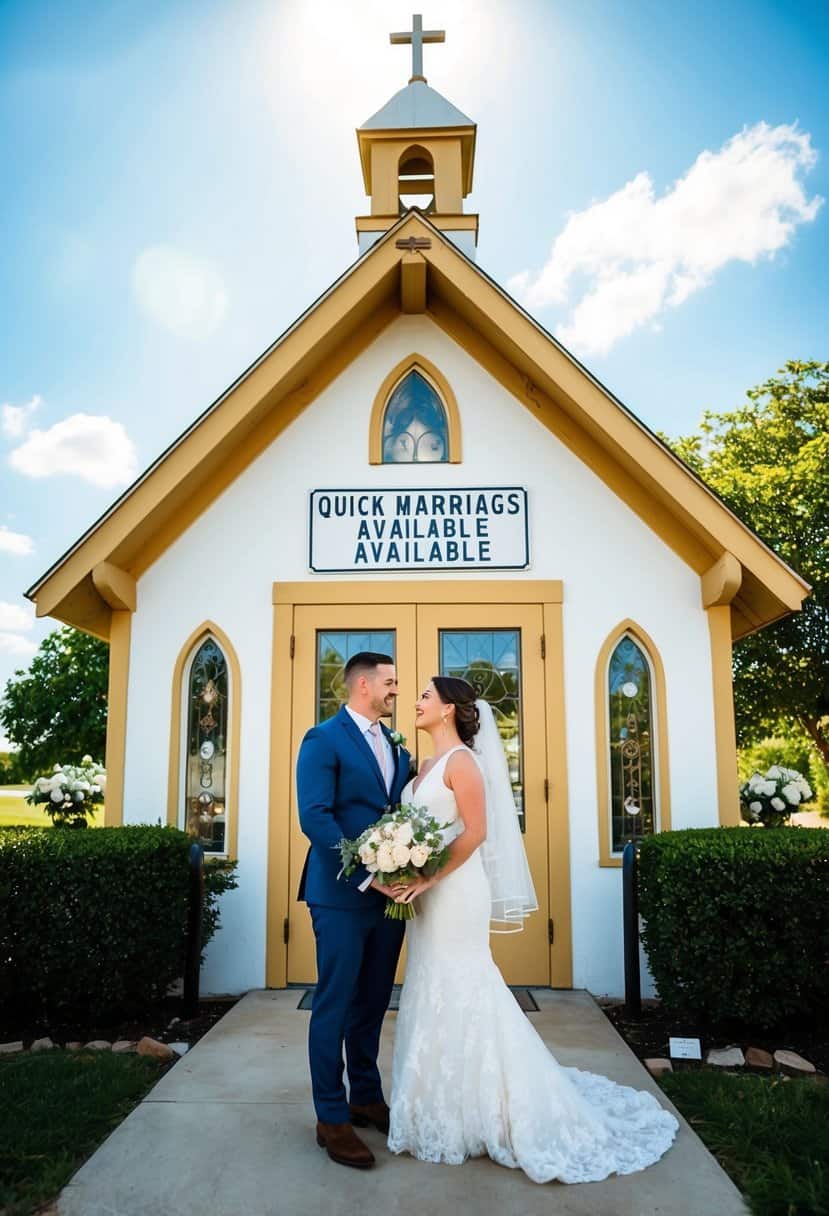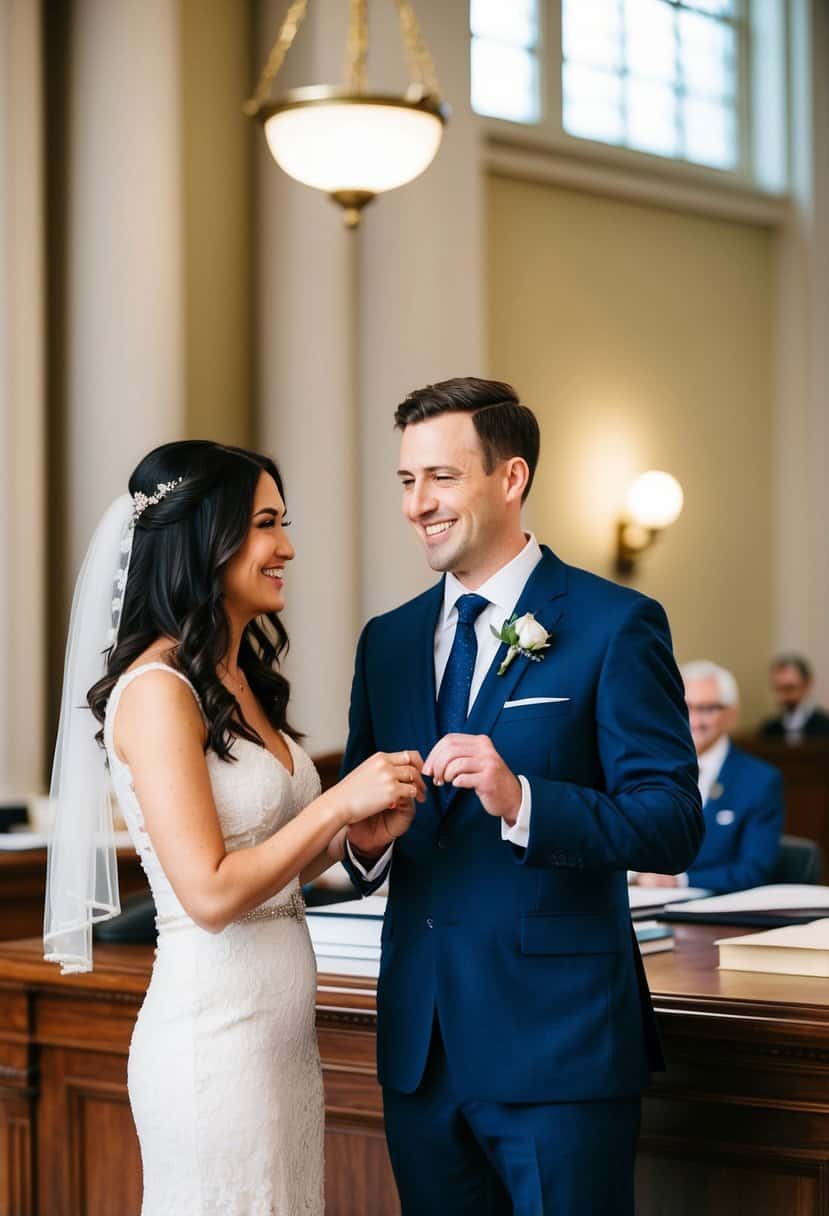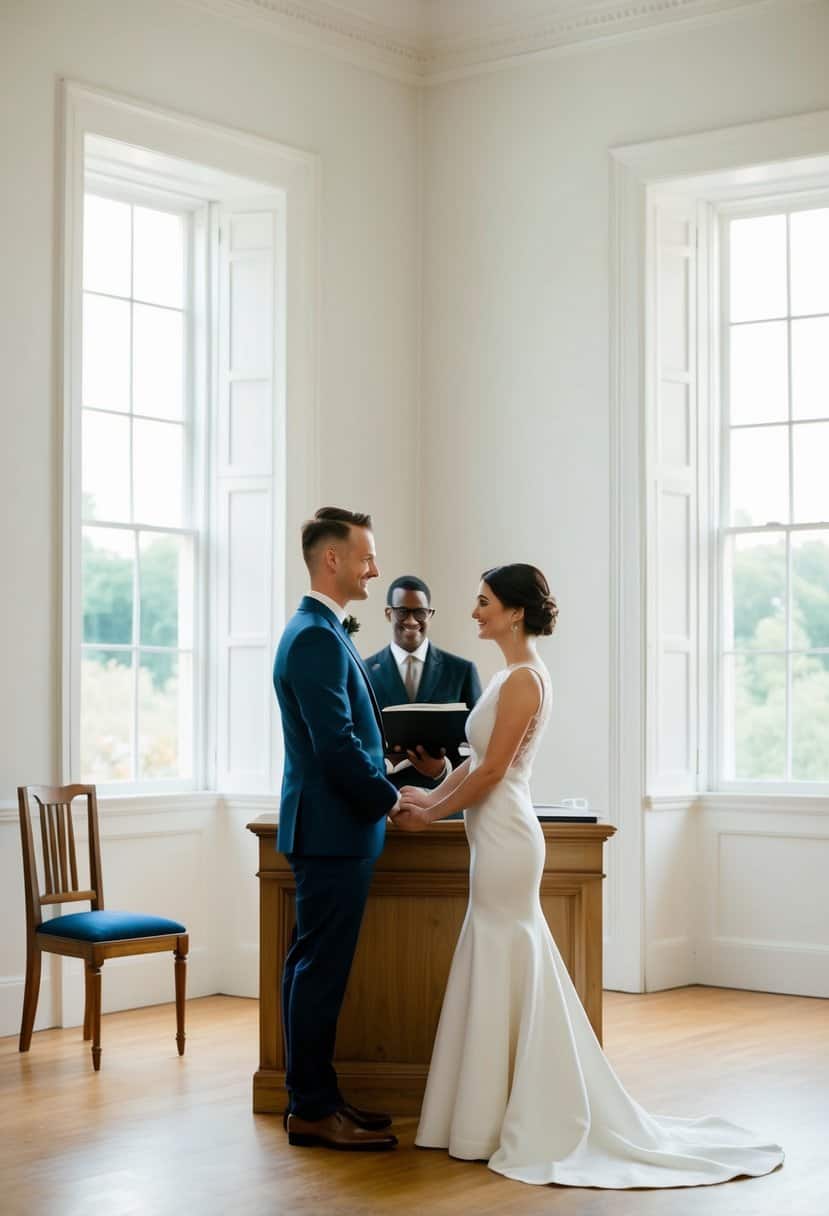What is the Quickest You Can Get Married in the UK? A Friendly Guide to Fast Weddings
Planning a wedding can be exciting, but if you’re hoping to fast-track the process, you might wonder just how quickly you can get married in the UK.
Under normal circumstances, you need to give a notice period of at least 28 days before the marriage can legally take place. This applies across various locations like England, Scotland, Wales, and Northern Ireland, but special exceptions might allow for a quicker process.

If you’re dealing with special situations or emergencies, you might be eligible for a special license. This has been done in the past for exceptional circumstances, such as during World War II. With a special license, the waiting period can be waived, making it possible to tie the knot sooner.
Keep in mind, if you or your partner are non-UK nationals, there might be additional legal requirements to consider before getting married in the UK. Remember to check all the details to ensure everything goes smoothly.
Legal Prerequisites for Marriage

When planning to get married in the UK, you need to make sure you meet several important legal requirements. These include proving your identity, age, nationality, and legal status.
You’ll also need a marriage certificate. Each requirement ensures that you can legally proceed with your wedding, whether it is a civil or religious ceremony.
Understanding UK Marriage Laws
In the UK, marriage laws require you to be at least 16 years old. Those under 18 need parental consent. You must not be married or in a registered civil partnership with someone else. Both partners must have the mental capacity to understand the consequences of marriage.
It’s also essential for you to provide a marriage certificate after your ceremony, whether it’s a civil or religious ceremony.
A notice period of 28 days is mandatory before you can marry. This notice is a declaration of your intention to marry, and it must be given at your local registry office. The notice includes your full name, age, marital status, nationality, and address. If you or your partner is subject to immigration control (e.g., holding a spouse visa or indefinite leave to remain), additional regulations apply.
Proof of Identity and Status
To get married in the UK, you must provide several documents to prove your identity and status. This includes a valid passport as proof of nationality and a birth certificate to confirm your age.
You may also be asked for a driving license or utility bill as proof of address. If you’re a British citizen or have settled status through the EU Settlement Scheme, you might need to show additional documents.
If you are from a non-EU country and on a visitor visa, make sure your visa allows you to marry. Those with indefinite leave to remain or applying under the EU Settlement Scheme need to show appropriate documentation. This ensures your marriage abides by UK laws.
Civil Partnership Conversion
If you’re in a civil partnership and wish to convert it to a marriage, the UK allows this process. You must attend a conversion appointment.
At this appointment, you will confirm your decision and provide necessary documentation, such as proof of identity and civil partnership registration.
The conversion can occur at a registry office or an approved venue, where you receive a marriage certificate to formalize the change. This process doesn’t require a separate ceremony unless you wish to have one. Converting your civil partnership ensures your relationship is recognized as a marriage in legal terms.
Planning Your Wedding

Organizing a wedding requires careful consideration of the date, venue, and budgeting essentials. Proper planning helps ensure that your special day reflects your dreams and expectations.
Setting the Date
Deciding on a wedding date is one of the first steps in your planning journey. If you’re in the UK and need a quick wedding, you must give notice to a registry office at least 29 days before your desired date.
Think about the season and day of the week; weekdays might offer more availability and potentially lower costs.
Discuss with your partner and important family members to ensure key guests can attend. Using a wedding planner can help you explore available dates and manage timelines effectively. Jot down several potential dates before confirming.
Choosing Your Venue
The venue is the heart of your wedding. When timing is tight, consider venues with all-inclusive options.
Places like hotels or special event halls might simplify your planning since they often offer packages covering catering, decor, and even accommodations. You might explore last-minute wedding packages in Wales for a beautiful yet efficient choice.
Decide if you want an indoor or outdoor setting based on the season. If you’re planning a smaller affair, intimate venues could host cozy celebrations.
Make a shortlist of options and visit each venue if possible. Consider the logistics, including guest size, location, and services offered.
Budgeting for Your Big Day
Creating a budget sets the foundation for your wedding planning. Determine what you can afford and prioritize spending based on what’s most important to you.
Keep a checklist to track all essential expenses like venue fees, attire, catering, and decorations. Limiting the guest list can significantly reduce costs.
Discuss with any contributors like family members to establish a clear financial plan.
Be open to compromises; a wedding planner might offer cost-saving tips without sacrificing quality. A simple spreadsheet can help you stay organized and prevent overspending.
Prioritizing is vital; focus funds on elements that matter most to you and your partner.
The Ceremonial Considerations

When planning a wedding in the UK, you need to understand your options for ceremonies. You can choose between civil and religious ceremonies, and it’s also important to consider how these options apply to same-sex marriages and partnerships.
Civil vs Religious Ceremonies
In the UK, you have the choice of a civil or religious ceremony. A civil ceremony is conducted by a registrar and can take place in a registry office or an approved venue. These ceremonies are popular for their flexibility, allowing you to personalize the event without religious content.
Religious weddings are held in places of worship. They follow specific rituals and customs that vary according to the faith. If you choose this route, be sure to check the guidelines and requirements for your chosen religion.
Keep in mind that certain churches might require one or both partners to practice the faith or participate in specific pre-wedding preparations.
Same-Sex Marriages and Partnerships
The UK recognizes both same-sex marriages and civil partnerships. A civil partnership is similar to marriage but does not involve a wedding ceremony. Instead, legal documents are signed in front of witnesses.
For same-sex couples seeking a wedding, both civil and religious ceremonies are options. However, not all religious institutions perform same-sex weddings, so you may need to find one that aligns with your beliefs and preferences.
Regardless of the type of ceremony you choose, you and your partner can tailor the celebration to reflect your unique relationship. Whether you’re opting for a partnership or a full wedding, the UK offers diverse paths to celebrate love.
Finalizing the Process

In the UK, finalizing the marriage process involves obtaining a marriage license and registering your marriage. Each step requires careful attention to detail, especially in different regions like England and Scotland.
Obtaining the Marriage License
To start, you need to give notice at your local registry office. This must be done at least 28 days before your ceremony.
Both you and your partner must appear in person. You need to provide identification documents such as a passport or birth certificate, and proof of address like a utility bill. If you’re divorced, bring along your decree absolute.
You should check if you need parental responsibility consent. This might be necessary if one partner is under 18 in certain regions like Northern Ireland.
Once notice is given, you can apply for the marriage license, which allows you to marry within a year. Some regions may offer faster application processes if required.
Marriage Registration
After your ceremony, the next step is to register the marriage. You and your witnesses will sign the marriage register. Then, the registrar will issue a marriage certificate. This acts as legal proof of your marriage.
In England, the certificate and registration are vital. This is especially true if you later decide to enter a civil partnership or need legal documents for changes like a divorce. The registration process may differ slightly depending on where you get married. So, make sure you follow the guidelines specific to your ceremony location. This will ensure you complete the process smoothly.



